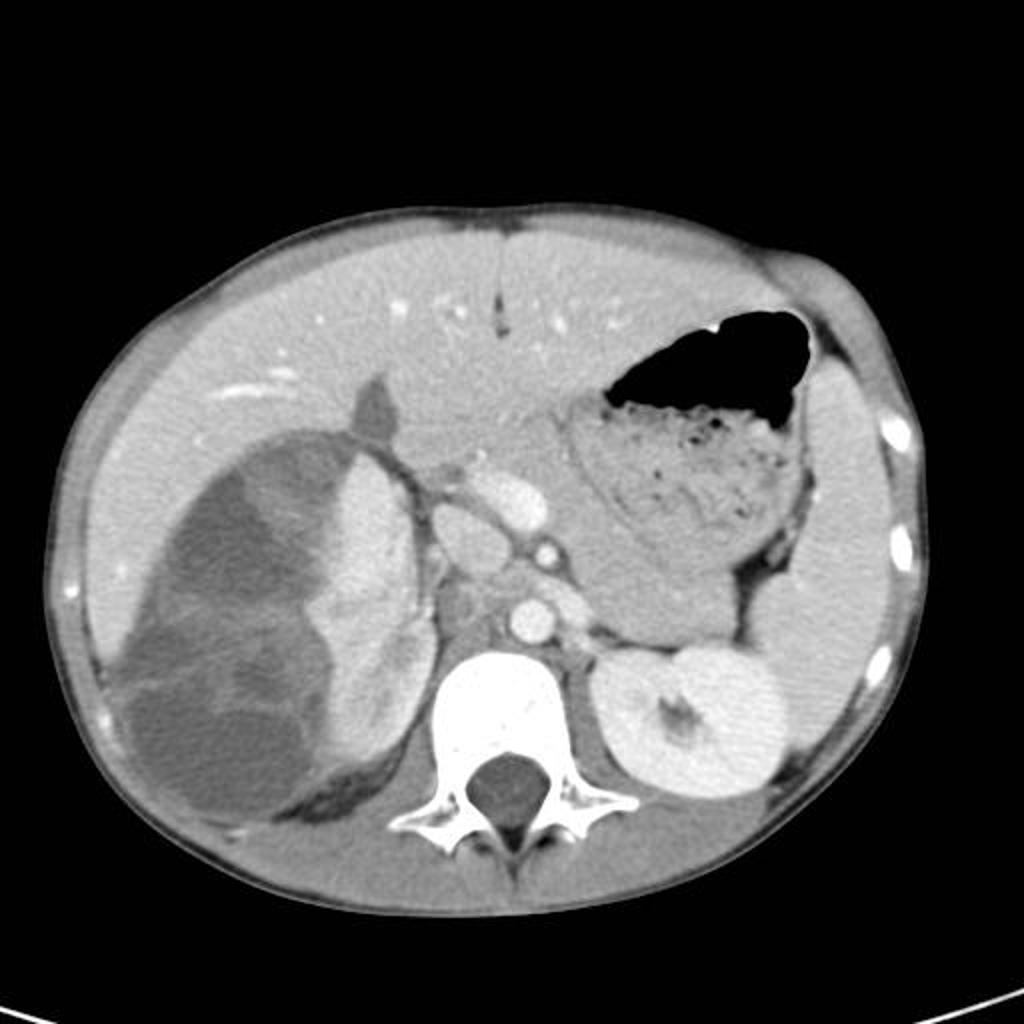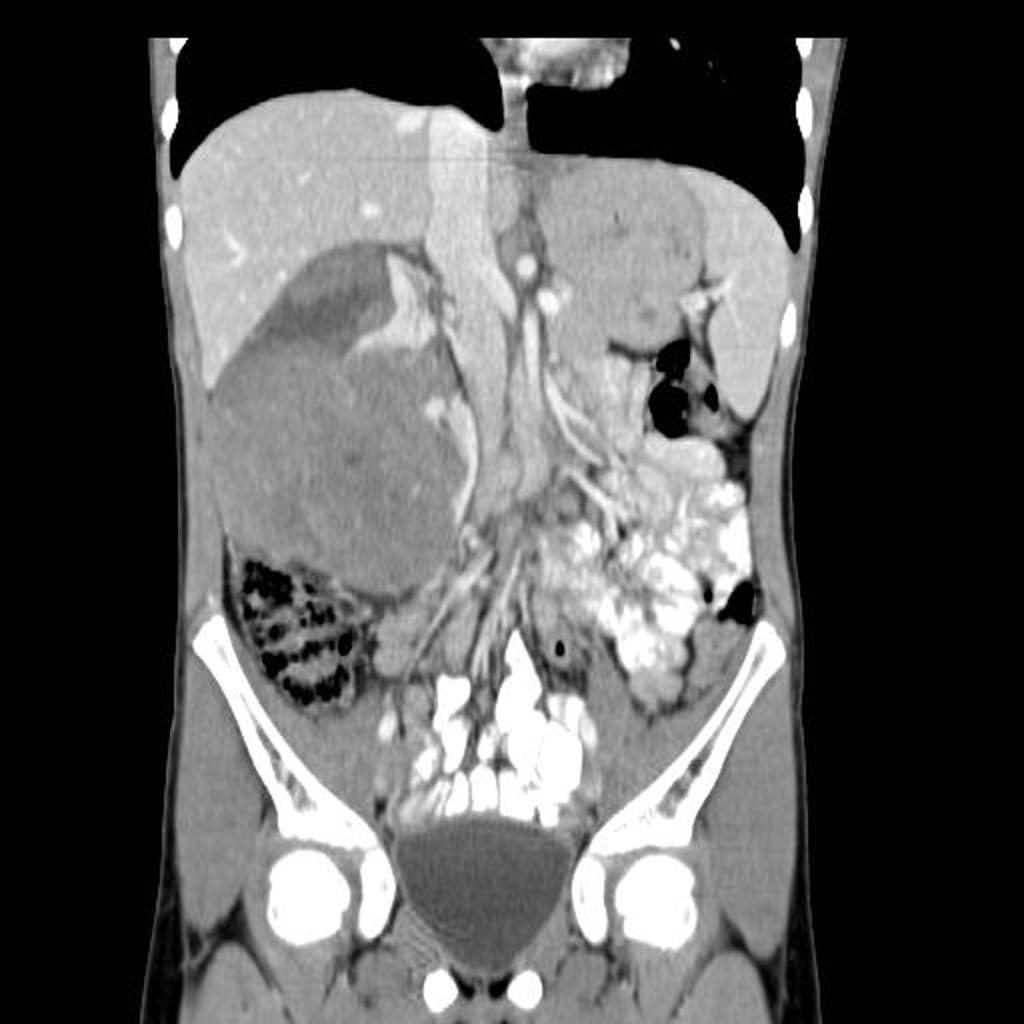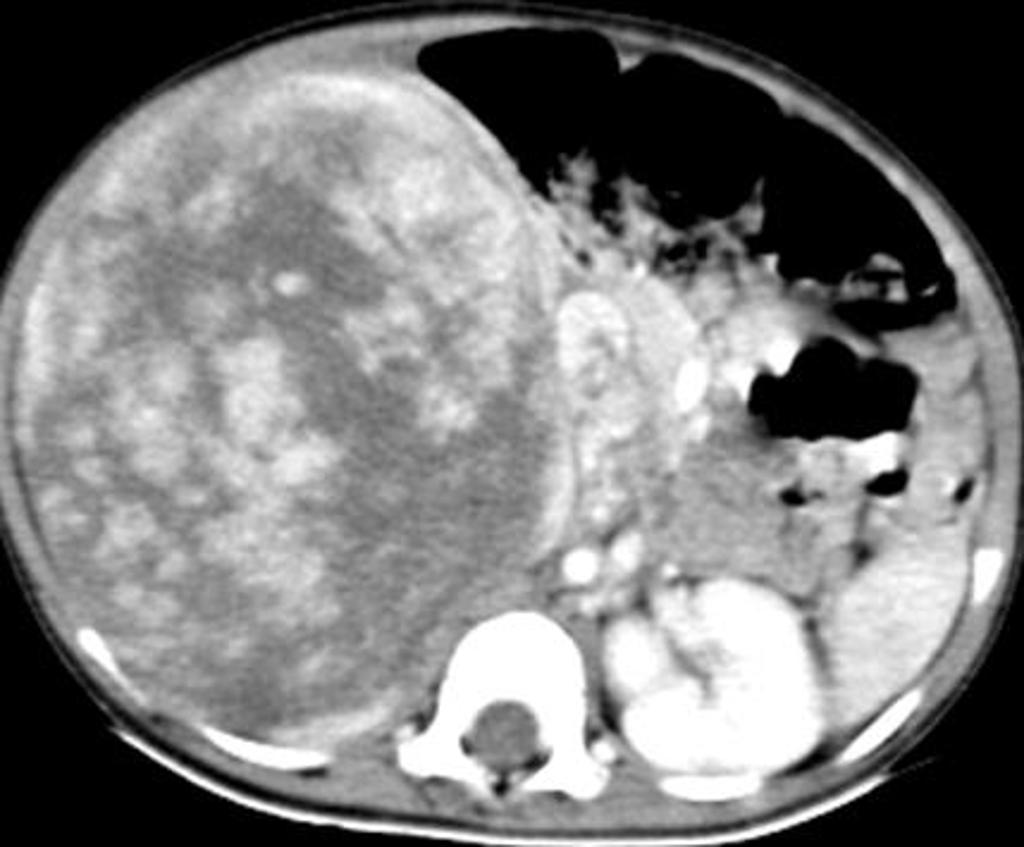Wilms' tumor CT
Jump to navigation
Jump to search
Editor-In-Chief: C. Michael Gibson, M.S., M.D. [1];Associate Editor(s)-in-Chief: Sargun Singh Walia M.B.B.S.[2]
|
Wilms' tumor Microchapters |
|
Diagnosis |
|---|
|
Treatment |
|
Case Studies |
|
Wilms' tumor CT On the Web |
|
American Roentgen Ray Society Images of Wilms' tumor CT |
Overview
Abdominal CT scan may be helpful in the diagnosis of Wilms tumor.Findings on CT scan which can be suggestive of Wilms tumor include soft-tissue density masses, areas of calcification (~10%) and fat-density regions. CT is better than ultrasonography in detecting small lesions of tumor. CT scan of the chest can be helpful to diagnose lung metastasis.
CT scan
- Abdominal CT scan may be helpful in the diagnosis of Wilms tumor. Findings on CT scan suggestive of Wilms tumor include:[1][2][3]
- Heterogeneous soft-tissue density masses
- These masses have frequent areas of calcification (~10%) and fat-density regions
- Lymph node metastasis
- Invasion of surrounding organs
- Thrombus in or occlusion of the renal vein and/or the inferior vena cava
- Abdominal lymph nodes and contralateral involvement
- Estimate tumor size and volume and to plan surgical management
- Determine stage based on tumor size and structures involved
- Chest CT scan can be helpful to diagnose lung metastasis.



References
- ↑ Cahan LD (1985). "Failure of encephalo-duro-arterio-synangiosis procedure in moyamoya disease". Pediatr Neurosci. 12 (1): 58–62. PMID 4080660.
- ↑ Wilms tumour. Dr Tim Luijkx and Dr Frank Gaillard et al. Radiopaedia.org 2015.http://radiopaedia.org/articles/wilms-tumour
- ↑ Gow KW, Roberts IF, Jamieson DH, Bray H, Magee JF, Murphy JJ (May 2000). "Local staging of Wilms' tumor--computerized tomography correlation with histological findings". J. Pediatr. Surg. 35 (5): 677–9. doi:10.1053/jpsu.2000.5941. PMID 10813321.
- ↑ https://radiopaedia.org/cases/8084
- ↑ Case courtesy of Dr Jeremy Jones, <a href="https://radiopaedia.org/">Radiopaedia.org</a>. From the case <a href="https://radiopaedia.org/cases/8084">rID: 8084</a>
- ↑ Case courtesy of Dr G Balachandran, <a href="https://radiopaedia.org/">Radiopaedia.org</a>. From the case <a href="https://radiopaedia.org/cases/10250">rID: 10250</a>